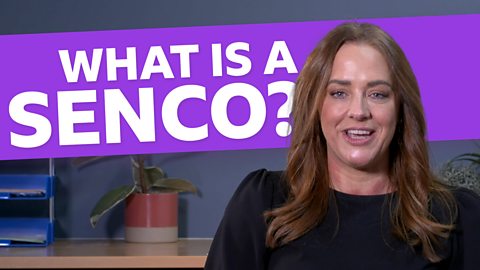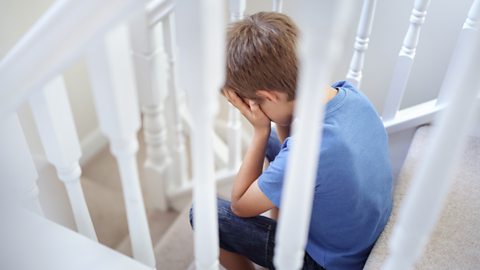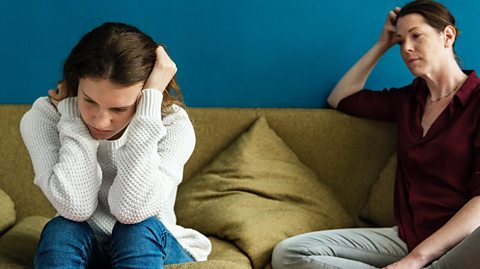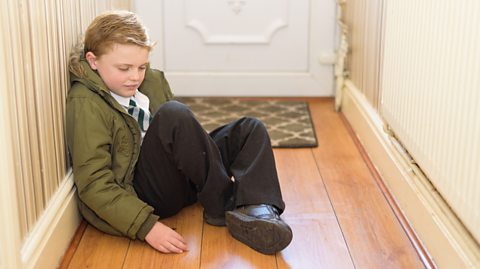Whilst at primary or secondary school, your child may have been referred to a school counsellor.
That referral may have come from their form teacher, a pastoral care teacher, or sometimes from the child themselves. To help you understand the role of a school counsellor, and how they may help your child, we spoke to school counsellor Catherine Mantack…
Catherine Mantack (school counsellor): Hello, my name is Catherine Mantack and I am a school counsellor.
VO: WHAT IS A SCHOOL COUNSELLOR?
Catherine Mantack (school counsellor): Some schools have a counsellor, who is a qualified professional who is employed by a school to work with pupils experiencing issues that are impacting their emotional or psychological wellbeing. School counsellors do this by providing a safe space for pupils to discuss any issues or experiences in their life.
VO: WHAT CAN A COUNSELLOR DO TO HELP MY CHILD?
Catherine Mantack (school counsellor): A school counsellor can help your child understand their feelings and teach them healthy coping skills to deal with emotional challenges such as stress and anxiety.
They can also work on improving your child's self-esteem and self-confidence.
During moments of crisis or distress a school counsellor can provide much needed intervention and emotional guidance. A school counsellor can also help identify additional needs or barriers to learning, and work with teachers to put appropriate support in place.
VO: SHOULD I BE WORRIED IF A SCHOOL COUNSELLOR IS INVOLVED?
Catherine Mantack (school counsellor): As a parent or carer, it’s natural to be worried, but I would encourage you to see the school counsellor as a positive step. If your child has accepted support from a counsellor, then they have acknowledged that there is an issue that they are not able to tackle alone, and this shows great strength and courage.
A school counsellor will want to work in tandem with the child’s teachers and parents or guardians to support the child in the best way possible.
What is a school counsellor?
Some – but not all – schools have a counsellor who is a qualified professional employed by schools to work with pupils who are experiencing issues that are impacting their emotional or psychological wellbeing. School counsellors provide a safe space for pupils to discuss any experiences or challenges in their life. Most counselling is offered one-to-one, and is confidential. Counselling is distinct from pastoral care and the role of the SENCO within the school setting.
What can a counsellor do to help my child?
A school counsellor can help your child understand their feelings, and teach them healthy coping skills to deal with emotional challenges such as stress and anxiety. They can also work on improving your child’s self esteem and self confidence. During moments of crisis or distress, a school counsellor can provide much-needed intervention and emotional guidance. A school counsellor can also help identify additional needs or barriers to learning, and work with teachers to put appropriate support in place.
Counselling can also help:
• Children who are experiencing bullying or bereavement • Support young people experiencing relationship difficulties with family or friends • Help young people manage anger and other strong emotions • Assess whether SEN support is also needed
Should I be worried if a school counsellor is involved?
Catherine Mantack says that as a parent or carer it’s natural to be worried but to try and see support from a school counsellor as a positive step. If your child has accepted support from a counsellor then they’ve acknowledged there’s an issue they’re not able to tackle alone, which shows great strength and courage.
A school counsellor will want to work in tandem with your child’s teachers and you as parents or guardians to support your child in the best way possible.
There are helplines, textlines and online services available that you and your child can look at together:
- – offers support to anyone under 25
- – can help families locate local support services
- – a peer support forum for young people, which is moderated and anonymous
- 91»»±¨ Mental Wellbeing content, the 91»»±¨ Headroom campaign, and the 91»»±¨ Action Line each have links to lots of helpful content and services.
Watch our film for guidance on what to do while waiting to access Child and Adolescent Mental Health Services.
The 91»»±¨ has more information in this mental wellbeing collection as well as links to useful organisations on the 91»»±¨ Action Line.

More from 91»»±¨ Bitesize Parents' Toolkit‚Ķ
Parents' Toolkit
Fun activities, real-life stories, wellbeing support and loads of helpful advice - we're here for you and your child.

How to support and equip parents to talk about their child’s mental health
Consultant child educational psychologist Laverne Antrobus has tips to support parents in talking about mental health with a child.

What is a school SENCO?
Parents' Toolkit guide to the role of a Special Educational Needs Coordinator, what questions to ask a SENCO, and how can a SENCo help my child?

Five tips to support the after-school ‘meltdown’
Expert advice on how to cope with after-school restraint collapse as a parent.

Mental health first aid kit for parents: Who to ask and what to do
Worried that your child needs help with their mental health? Here's how you can access professional help and support your child while you wait.

School anxiety and refusal: How to help your child get through tough times
Tips to help parents understand emotionally-based school avoidance and offer support to their child.
